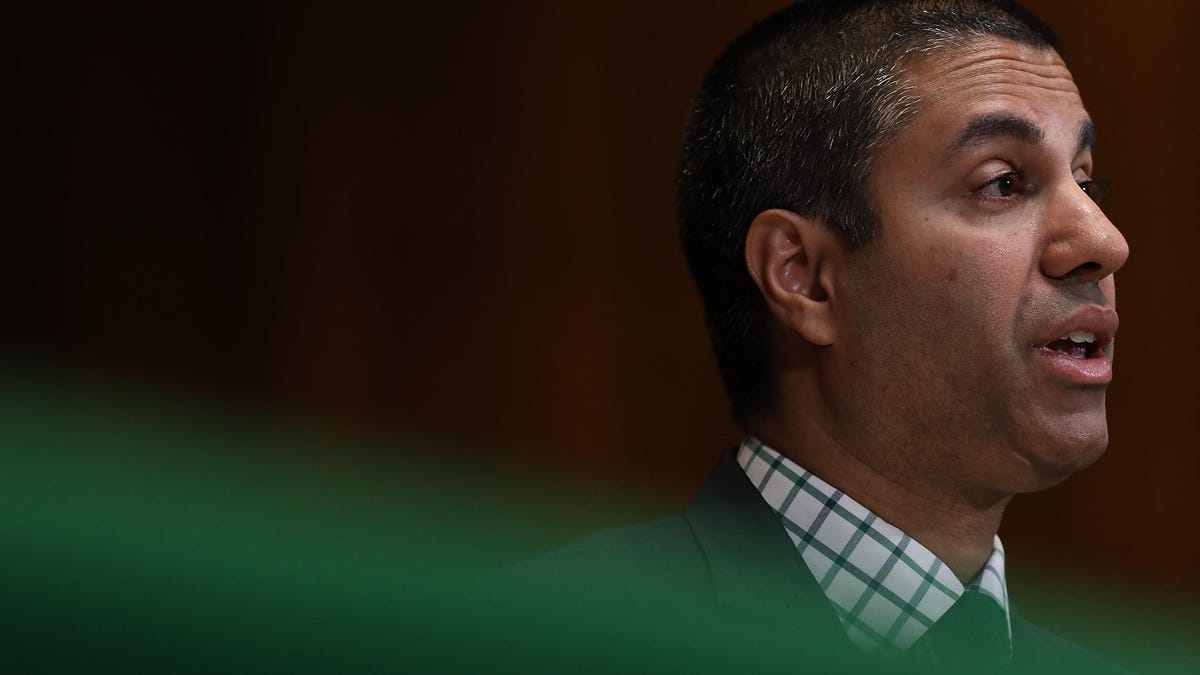Ajit Pai blames Obama administration over FCC DDoS attack that didn't happen
Turns out the FCC's website didn't crash in May 2017 because of multiple distributed denial-of-service attacks.

FCC Chairman Ajit Pai says the agency's former chief information officer provided false information about last year's crash.
FCC Chairman Ajit Pai said Monday that a high-profile outage of the agency's website last year wasn't caused by DDoS attacks as previously suggested, though he didn't offer an alternative explanation for the crash.
On May 7, 2017, the FCC's comment system crashed after Last Week Tonight host John Oliver encouraged his audience to post comments to the agency in support of net neutrality .
FCC officials initially said the site had been hit by a series of distributed denial-of-service (DDoS) attacks, which flood a website with useless traffic and cause it to slow down or crash. Net neutrality supporters accused the agency of making up the attack and blamed it for failing to keep the system online.
The Office of Inspector General led an independent investigation into the incident. The results of that report haven't been released, but Pai, who President Donald Trump designated to be FCC chair shortly after taking office, said the IG found the information about DDoS attacks was false.
"I am deeply disappointed that the FCC's former Chief Information Officer (CIO), who was hired by the prior Administration and is no longer with the Commission, provided inaccurate information about this incident to me, my office, Congress, and the American people," Pai wrote in a statement. "This report debunks the conspiracy theory that my office or I had any knowledge that the information provided by the former CIO was inaccurate and was allowing that inaccurate information to be disseminated for political purposes."
Pai said the former CIO notified his office on May 8 that "some external folks attempted to send high traffic in an attempt to tie-up the server from responding to others," Pai wrote. Pai didn't name the former CIO, but David Bray served in the position at that time.
In an emailed statement, Bray said the FCC IG hasn't contacted him and he hasn't seen their reported findings. He also said no one's reached out to him to ask what he observed or concluded during the incident.
Bray added that "swift response ensured the commenting system was up more than 99.4 percent of the time for the total commenting period."
The FCC's chief of staff asked the CIO if the incident was in fact caused by a DDoS attack, rather than a flood of people trying to reach the site at the same time, Pai wrote on Monday. The former CIO told Pai's office he was "99.9% confident this was external folks deliberately trying to tie-up the server to prevent others from commenting and/or create a spectacle."
In a response, FCC Commissioner Jessica Rosenworcel called the claim of a DDoS attack "bogus." The Democratic member of the commission added that "what happened instead is obvious -- millions of Americans overwhelmed our online system because they wanted to tell us how important internet openness is to them and how distressed they were to see the FCC roll back their rights."
Net neutrality advocacy group Fight for the Future was skeptical about Pai's statement, saying the FCC failed in its responsibility to maintain a space for public opinion.
"Under Ajit Pai's leadership, the FCC sabotaged its own public comment process," Evan Greer, deputy director of Fight for the Future, said in a statement. "Pai attempts to blame his staff, but this happened on his watch, and he repeatedly obstructed attempts by lawmakers and the press to get answers."
The FCC didn't immediately respond to a request for comment on Fight for the Future's statement.
Pai said the report highlights the need for the FCC to update and redesign its comment system. Congress last week approved the funding necessary for that project, he said.
You can read Pai's full statement below:
Ajit Pai on FCC IG by jonathan_skillings on Scribd
First published Aug. 6, 3:20 p.m. PT.
Update, Aug. 7 at 10:12 a.m.: Adds comment from David Bray.

